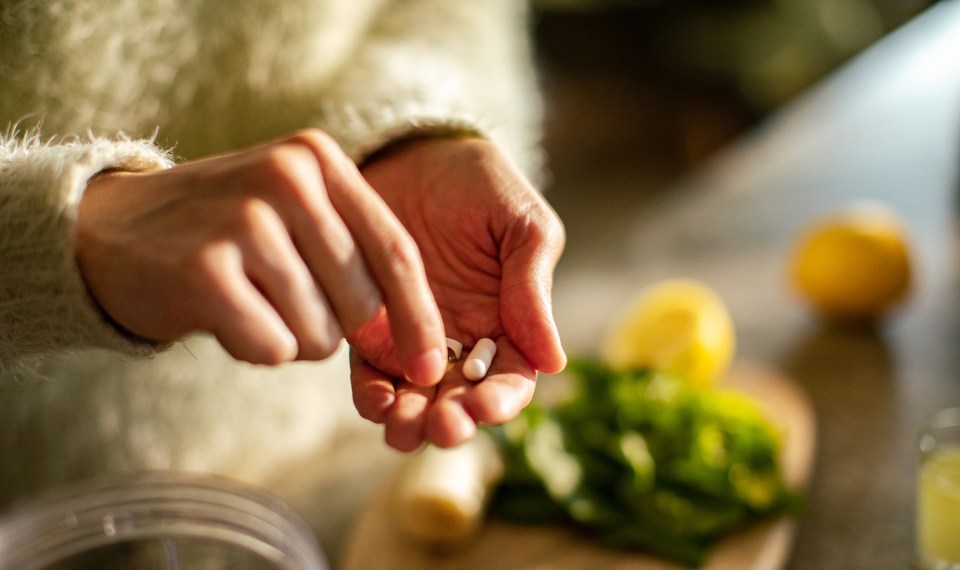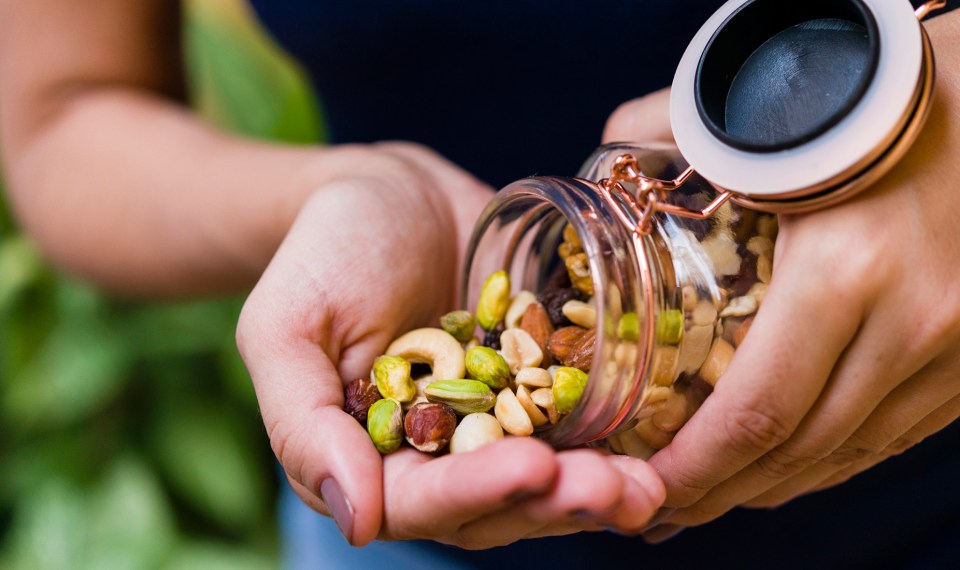Surveys have shown as many as 70 percent of adults with diabetes use alternative medicine such as supplements to lower blood sugar.
Supplements are regulated under the umbrella of “foods,” and do not undergo the same testing for safety and effectiveness as medications. Although some supplements have been studied for managing diabetes, it is important to recognize trial data on their effectiveness is often limited. The American Diabetes Association (ADA) warns research on many supplements is inconclusive and that certain supplements carry risks.
Supplements should never be used in place of effective diabetes treatment prescribed by your healthcare provider. Be sure to discuss any supplements you are considering taking with your doctor and diabetes team.
Understanding Blood Sugar Levels
Your blood sugar level describes the amount of glucose found in your blood. Glucose is the body’s primary energy source, and it comes from the foods you eat—especially carbohydrates. As food is processed, or broken down, it produces glucose that is released into your bloodstream.
Glucose is needed to help your body carry out basic functions. Hypoglycemia is a term used to describe when blood sugar becomes too low. When you do not consume enough food to maintain blood sugar levels, glycogen (a storage form of glucose) is broken down, releasing glucose for your body to use. Glucose is also stored in your liver and other tissues in the body for when your blood sugar levels drop.
To prevent blood sugar levels from rising too high, your pancreas releases insulin, a hormone that helps glucose enter the beta cells, decreasing sugar levels in the bloodstream. If your body doesn’t make enough insulin or doesn’t use it effectively, blood sugar levels increase beyond a normal level. This is known as hyperglycemia.
Hyperglycemia can be caused by major illnesses, hormonal disorders, trauma and other conditions, but diabetes is the most common cause of high blood glucose. Over time, high blood sugar levels can lead to nerve and organ damage.
Types of Diabetes
There are two main types of diabetes:
- Type 1 diabetes is a chronic condition believed to be due to an autoimmune reaction that destroys the cells in the pancreas responsible for making insulin.
- Type 2 diabetes is much more common and typically develops later in life, although it is occurring more frequently in younger age groups. You are at risk of type 2 diabetes if you lead a sedentary lifestyle and are overweight or obese. Type 2 diabetes is associated with insulin resistance, a condition where your body’s cells don’t respond normally to insulin, forcing the pancreas to make more. Eventually, the pancreas is unable to keep up, and blood sugar rises.
Supplements to Lower Blood Sugar
Common supplements to lower blood sugar include:
Cinnamon
Some studies have shown this common spice may help in lowering blood sugar by increasing insulin sensitivity and imitating the effects of insulin.
When taken at the recommended dosage of 120-6,000 mg daily, cinnamon is generally well-tolerated and considered safe. However, after numerous studies, it still isn’t clear whether cinnamon is an effective supplement to lower blood sugar in diabetes. Although some studies have shown the supplement to be beneficial in lowering fasting blood sugar, it does not affect hemoglobin A1C.
One of the problems with determining the effectiveness of the supplement is that the various studies have used different types of cinnamon at different dosages. Lower doses of cinnamon do appear to be safe when taken short-term. The American Diabetes Association suggests cinnamon isn’t likely to provide a reliable drop in blood sugar for those with type 2 diabetes. Although it does recommend using it to season food in place of sugary condiments.
Cautions: Be aware that cinnamon may be unsafe in higher than recommended doses and should not be taken if you are on warfarin, which is used to treat and prevent blood clots, or have liver issues.
Ginseng
This well-known herbal remedy has been shown to reduce oxidative stress and inflammation. A series of 16 studies found fasting blood sugar levels were better in those taking a ginseng supplement as compared to those who did not. It also showed improvement in insulin resistance and in insulin levels after eating. Although there are different types of ginseng, most studies have focused on American ginseng.
An article in the ADA’s Diabetes Spectrum publication suggested taking 3 grams of ginseng by mouth up to two hours before a meal is likely safe and may lower fasting glucose levels. There is no proof taking a higher dose of ginseng would produce added benefit.
Cautions: Do not take ginseng if you are currently taking warfarin since it could lessen the effects of the drug. It is also important to talk to your healthcare provider before starting ginseng since it can interact with other diabetes medications, including insulin. Some side effects of ginseng include headache, diarrhea, and insomnia.
Aloe Vera
Aloe vera, which comes from the succulent plant by the same name, has many medicinal properties. There is some evidence that aloe vera can improve fasting blood glucose levels and may even improve hemoglobin A1C. Most experts agree more research is needed to confirm the benefits of aloe vera as a supplement to lower blood sugar levels. A 2015 study published in the Journal of Diabetes & Metabolic Disorders also found that aloe vera extract could improve blood glucose levels and lipid (fat) levels for those with pre-diabetes.
Cautions: Taking oral aloe vera in combination with type 2 diabetes medications can cause a serious drop in blood sugar levels. Aloe vera may also have a laxative effect that could interfere with absorption of other medications.
Berberine
This plant chemical found in barberry, goldenseal, goldthread, Oregon grape and tree turmeric may be beneficial in reducing blood glucose levels and insulin resistance. It may also boost lipid metabolism in type 2 diabetes. Taken orally, it is considered safe in doses of 200 to 1,000 mg two to three times daily.
Cautions: Berberine may cause nausea, diarrhea, gas and constipation.
Vitamin D
Studies have shown low vitamin D levels increase the risk for type 2 diabetes. Some research indicates a link between vitamin D and insulin resistance. Vitamin D3 could provide some protection against insulin resistance by lowering inflammation, which increases the risk of insulin resistance.
Low vitamin D levels may also be associated with future development of type 2 diabetes, although study results are mixed. While it is not clear exactly how vitamin D works to regulate blood glucose, it does appear to play a role in diabetes.
Low vitamin D levels are common, affecting an estimated 4 in 10 adults. The main source of vitamin D comes from sunlight. The vitamin can also be found in egg yolks, fatty fish and fortified milk and cereals.
Cautions: Before starting vitamin D supplements, talk with your doctor about getting tested. A simple blood test can determine whether your level is within the normal range. Very high doses of vitamin D can be toxic in rare cases.
Magnesium
According to the National Center for Complementary and Integrative Health (NIH), individuals with diets higher in magnesium have a lower risk of developing diabetes. Foods rich in magnesium include legumes, seeds, nuts, whole grains, and spinach. Some studies indicate magnesium supplements may improve blood sugar control and insulin sensitivity in those with diabetes or prediabetes.
Cautions: Magnesium supplements can interfere with several types of medications including bisphosphonates, antibiotics, diuretics, and proton pump inhibitors.
A Multifaceted Approach to Managing Diabetes
Diabetes impacts almost every part of your body. Diabetes management means controlling your blood sugar, blood pressure numbers and cholesterol. It requires a multifaceted approach including a healthy diet, exercise, medications, and possibly supplements. Working with your healthcare team to manage your risks and determine the best treatment options will help you achieve your best health.
The content of this site is for informational purposes only and should not be taken as professional medical advice. Always seek the advice of your physician or other qualified healthcare provider with any questions you may have regarding any medical conditions or treatments.



